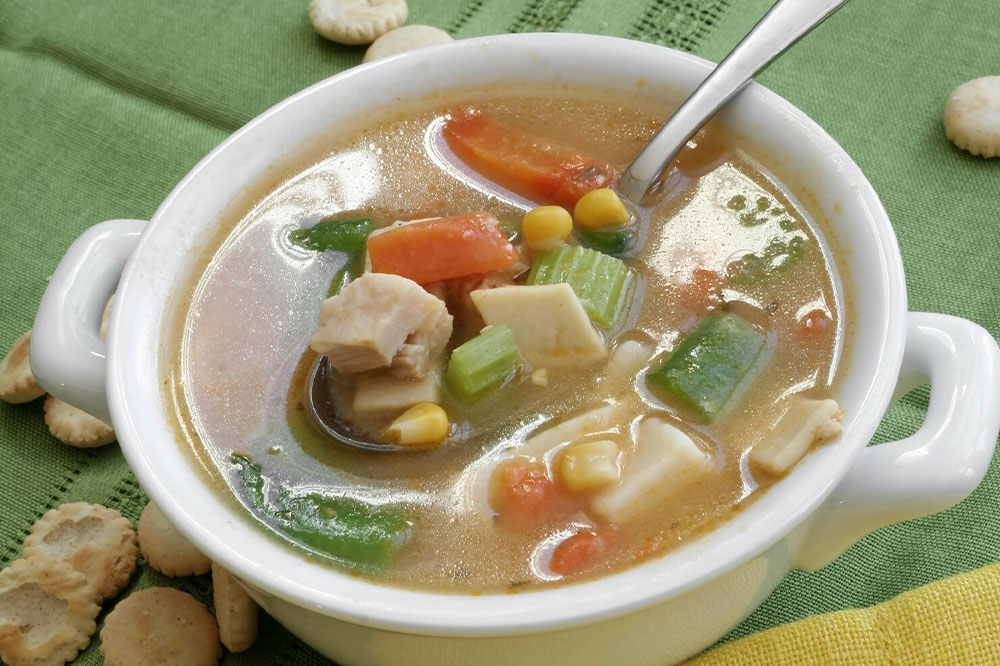
10 Home Remedies for Cold, Flu, and Nasal Congestion
After the COVID-19 pandemic began, people have started taking nasal congestion more seriously, and maintaining good health has become more of a priority to many. But it is important not to let this vigilance translate to frequent visits to the doctors. Instead, one must equip oneself with effective home remedies and develop healthy eating habits. The following are 5 remedies for cold and flu and 5 foods that will help relieve nasal congestion.
Home remedies for cold, flu, and nasal congestion
Taking a hot shower
The most obvious remedy for colds is a hot shower. Even without the flu, a warm burst of water can majorly relieve nasal congestion. Apart from washing away tiredness, inhaling the steam relieves pain and reduces pressure in the sinus, allowing a person to breathe easily for a while. If one is too tired for a hot water shower, one can use an electric facial steamer, which is more convenient. One could use a towel to cover one’s head and the steamer to increase the vapor’s concentration.
Investing in a humidifier
Most flu-causing viruses thrive in cold, dry environments. And humid air helps soothe irritated nasal tissue. Hence, nasal inflammation can be reduced by using a humidifier or cool-mist vaporizer. Humid air also thins mucus in the sinuses and allows them to drain quickly. This health remedy is beneficial when the air is more dry in the winter season. A similar effect is produced when one takes a long hot water bath. Ensure to regularly change the water in the bathtub or humidifier to prevent fungi and mold from growing. The effects can further be stimulated by adding essential oils like eucalyptus.
Menthol
Congested airways often dissolve when brought into close contact with menthol. Menthol is a compound from mint plants and contains antibacterial and pain-relieving capacities. Many vapor rubs contain this ingredient, and one can also use menthol essence in a humidifier. Menthol inhalation reduces coughing that is caused by environmental irritants and is effective in clearing congested sinuses. Menthol, eucalyptus, and camphor can all help improve sleep as well.
Sleeping right
Nasal congestion often worsens at night, and thus sleeping well becomes difficult. Elevating the head can help reduce nasal congestion, so sleep with an extra pillow under the head/neck. Though it might seem like an awkward position, it can help a person sleep better, at least temporarily. Due to gravity, the mucus tends to pool or back up and not drain when one lies flat. Adding a cool-mist vaporizer to the bedroom can help thin the mucus and relieve blocked sinuses.
Getting enough rest
A cold or flu exhausts a person, and it is interesting to know that it is not the pathogen but rather one’s immune system that makes one tired. However, when one understands this, it is a short leap to say that rest can help one’s body gain energy to fight off the infection. Take at least a day off work and relax with a television series or soothing music. Remember to pile on the blankets and stay cozy. One can also try a warm compress to help loosen the mucus in the sinuses and breathe easier.
Trying garlic
Despite its pungent smell, garlic is good to get used to for its cold-fighting capabilities. It contains a compound called allicin that has antimicrobial properties, which can reduce the severity of flu and cold symptoms. It is easy to incorporate into one’s daily meal plan as it is a perfect ingredient for various raw, roasted, pureed dishes, etc. Additionally, garlic also helps to improve heart health.
Trying honey
Honey is one of the best sweeteners with a variety of antimicrobial properties. It allows the body to fight pathogens related to colds and flu. It is good to have honey to prevent it even before one develops a cold. And it is also beneficial when one does not have a cold to promote overall health and improve immunity. Stir a spoonful of honey into a cup of warm water or tea for extra flavor or to soothe the throat. The warm water also helps loosen mucus and relieve nasal congestion.
Having chicken soup
Chicken soup is hailed as a cure-all in several households. Chicken soup provides relief when one has cold, flu or nasal congestion. When hygienically prepared at home, this hot soup, rich in nutrients, helps relieve a sore throat and stimulates nasal clearance. The protein from the chicken and vegetables provides energy to recover faster. Chicken soup has the ability to slow down the white blood cells so that they can concentrate in areas of the body that need to be healed. Adding in wholesome vegetables can also help a person regain strength faster. Low-sodium chicken soup is also a great choice to keep a person hydrated and nourished.
Keeping the body hydrated
The body loses a lot of water when a person gets a flu or cold. Hence, it is important to consume fluids to keep the body hydrated. Gargling with warm water and salt can help remove pathogens in the throat. Adding astringents to the mix can also help reduce the irritation in the throat. It is best to drink steaming hot liquids to soothe the inflamed membranes in the nose and throat. Hot herbal tea or honey can be mixed in warm water to soothe the nose and throat. Do not drink scalding water since it can further worsen the symptoms.
Having ginger
Ginger is another spice that is perfect for clearing nasal congestion. One can chew a few thin slices of fresh ginger or boil some pieces in water as tea to soothe the throat. It also helps relieve other health conditions’ symptoms. Additionally, ginger can reduce the nausea that accompanies the flu. Fresh ginger has anti-inflammatory properties and can boost immunity and restore health faster.


